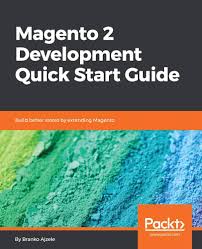Magento is a powerful e-commerce platform that provides robust solutions for online businesses. However, setting up and managing a Magento development environment can be complex and time-consuming. Developers often face challenges related to configuration, environment inconsistencies, and dependency management.
Warden, a CLI utility for orchestrating Docker-based developer environments, simplifies Magento development by offering pre-configured environments, automation, and improved collaboration. This white paper explores how Warden enhances Magento development efficiency, improves scalability, and streamlines CI/CD workflows.
Streamlining Magento Development with Warden
Introduction
Magento is a powerful e-commerce platform that provides robust solutions for online businesses. However, setting up and managing a Magento development environment can be complex and time-consuming. Developers often face challenges related to configuration, environment inconsistencies, and dependency management.
Warden, a CLI utility for orchestrating Docker-based developer environments, simplifies Magento development by offering pre-configured environments, automation, and improved collaboration. This white paper explores how Warden enhances Magento development efficiency, improves scalability, and streamlines CI/CD workflows.
Understanding Warden
Warden is a tool designed to simplify the management of Docker-based development environments. It provides several key features that make it particularly suitable for Magento development:
- Traefik: Handles SSL termination and request routing, ensuring secure communication.
- Portainer: Offers a visual interface for managing and monitoring running Docker containers.
- Dnsmasq: Provides DNS resolution for .test domains, simplifying local development.
- SSH tunneling: Facilitates database connections for remote debugging and performance tuning.
These features enable developers to create stable, scalable, and portable Magento environments with minimal setup.
Benefits of Warden for Magento Development
1. Consistency and Isolation
Warden leverages Docker containers to create isolated environments for Magento development. This ensures:
- Consistent environments across different machines.
- Avoidance of conflicts between dependencies.
- Simplified onboarding for new developers.
2. Efficiency
By providing pre-configured Docker containers optimized for Magento, Warden significantly reduces the time and effort required to set up a development environment. This automation leads to:
- Faster development cycles.
- Reduced manual configuration errors.
- Improved developer productivity.
3. Scalability
With Warden’s Docker-based approach, developers can easily scale their environments:
- Running multiple Magento instances with different configurations.
- Testing under various load conditions.
- Simulating production environments for accurate performance testing.
4. Portability
Magento applications developed using Warden can be easily moved between different environments, enabling:
- Smooth transitions from development to testing and production.
- Seamless team collaboration.
- Efficient deployment in cloud-based infrastructures.
Implementing Warden for Magento Development
1. Setting Up the Environment
To set up a Magento development environment with Warden, follow these steps:
Prerequisites
- Install Docker and Docker Compose on your development machine.
- Install Warden by running: curl -fsSL https://warden.dev/install.sh | bash
- Add Warden to your system’s PATH and restart your terminal.
Creating a Magento Environment
- Initialize a new Warden project:warden env-init magento2
- Start the Warden environment:warden up
- Set up Magento inside the container:warden shell bin/magento setup:install --base-url=http://magento.test
- Access Magento: Open http://magento.test in a browser.
Integrating Warden into CI/CD Workflows
1. Continuous Integration (CI)
To integrate Warden into CI, consider the following steps:
- Use a GitHub Actions workflow to build and test Magento in a Warden environment.
- Run Magento’s unit tests inside a Docker container: jobs: test: runs-on: ubuntu-latest steps: - name: Checkout code uses: actions/checkout@v2 - name: Set up Docker run: | sudo apt update && sudo apt install -y docker-compose - name: Start Warden run: | warden env-init magento2 warden up - name: Run Magento Tests run: | warden shell bin/magento dev:tests:run
2. Continuous Deployment (CD)
To deploy Magento applications:
- Push Docker images to Docker Hub or a private registry.
- Use Kubernetes or Docker Swarm for container orchestration.
- Automate deployments using tools like Ansible or Terraform.
Use Cases for Module and Theme Development
1. Custom Module Development
Warden simplifies module development in Magento by providing:
- A consistent environment where developers can write and test modules without conflicts.
- An isolated space to develop custom functionalities like payment integrations, shipping extensions, or promotional tools.
- Quick access to logs and debugging tools within the Dockerized environment.
Example Workflow:
- Create a new Magento module:mkdir -p app/code/Vendor/Module
- Define the module configuration:<config> <module name="Vendor_Module" setup_version="1.0.0" /> </config>
- Enable the module:bin/magento module:enable Vendor_Module bin/magento setup:upgrade
- Test and debug the module in the Warden environment.
2. Custom Theme Development
Developers can use Warden to create, test, and preview Magento themes efficiently.
Example Workflow:
- Create a new theme directory:mkdir -p app/design/frontend/Vendor/theme
- Define the theme configuration:<theme> <title>Vendor Theme</title> <parent>Magento/luma</parent> </theme>
- Apply the theme:bin/magento theme:apply Vendor/theme
- Test and refine styles using Warden’s local development environment.
By leveraging Warden’s flexibility, developers can rapidly iterate on Magento themes and modules, ensuring a seamless development experience.
Best Practices for Using Warden
- Organize environment configurations: Store .env files in version control for team consistency.
- Use Warden overrides: Customize warden-env.yml to tailor environments per project.
- Monitor Docker performance: Optimize resource allocation for smoother local development.
- Implement security best practices: Restrict database access and ensure SSL usage for secure development.
Conclusion
Warden simplifies Magento development by providing a consistent, efficient, and scalable environment. With its Docker-based approach, developers can streamline their workflows, integrate with CI/CD pipelines, and enhance collaboration. By leveraging Warden, Magento teams can focus on building exceptional e-commerce experiences rather than managing complex infrastructure.
References
[1] https://www.keencomputer.com/news/devops-engineering/313-white-paper-magento-ecommerce-development-with-docker-and-warden-service-manager-a-devops-approach
[2] https://blogs.terrificminds.com/setting-up-magento-2-development-environment-with-docker-warden
[3] https://blog.chapagain.com.np/set-up-magento-2-development-environment-with-docker-warden/
[4] https://github.com/wardenenv/warden
